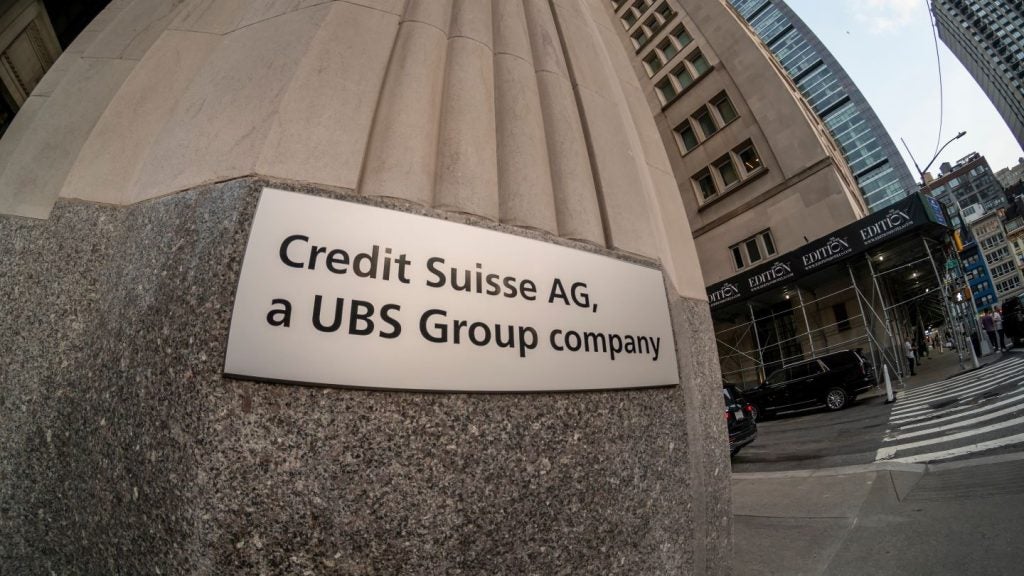The new global head of Citi Private Bank, Peter Charrington, is only too familiar with the bank’s DNA having worked within different departments of Citigroup since 1994. In his new role, Charrington is chiselling two decades of experience into a razor sharp business model to best service UHNWIs and maximise growth potential, writes Meghna Mukerjee
He calls New York City his home. However, lately, it is a jumbo jet that the new global head of Citi Private Bank, Peter Charrington, has been spending more time on. Though his fast-paced schedule is pulling him in different directions, his forward-looking strategy for the bank follows a steadfast route.

Access deeper industry intelligence
Experience unmatched clarity with a single platform that combines unique data, AI, and human expertise.
The aim is not to be the biggest private bank in the world. Nor is it about attaining the highest volumes. In fact, Citi Private Bank is being selective and strategic.
Customers of interest to the private banking subsidiary of US’ third largest bank by assets are the ultra high net worth individuals (UHNWIs) – defined as people worth $25m and onwards.
Charrington, who commenced his new role only in early September, does not wish to deviate from the trusted business model that the lender has been following to service the UHNW segment.
Having been with the bank for 20 years, Charrington is no stranger to Citi. Prior to this role, he ran Citi’s North America business for five years – the lender’s largest region by revenues and assets under management (AuM).

US Tariffs are shifting - will you react or anticipate?
Don’t let policy changes catch you off guard. Stay proactive with real-time data and expert analysis.
By GlobalDataAccording to Charrington, the private banking unit is "not trying to be all things to all people".
"Our objective is to make certain that we are providing a global service to the type of clients that we want to serve, in a truly open architecture manner, which I think we deliver today. I want to continue to make sure that we execute against our existing business strategy," he says.
Sharp focus
Charrington believes Citi Private Bank’s clearly defined business model gives it a competitive edge as all products and services are customised to the UHNW community, making the client experience "significantly stronger".
"It is not a complicated business model. We are not trying to serve thousands of customers, where the banker looks after 100s of clients. Our bankers each look after a small group of UHNW, sophisticated clients."
Citi Private Bank currently holds $310bn in client business volumes. Charrington has not set out specific growth targets for 2015 but the plan is to expand in an "organic, realistic, and sustainable way", understanding that the global economic climate is still difficult.
Organic growth rules out any mergers with or acquisitions of other private banks – a move many of Citi’s competitors are making.
Charrington says the focus, instead, is on finding the right talent to join Citi Private Bank and choosing the markets the lender wantsto invest in.
"When we look at the market today, there is a lot of fragmentation. Many of our competitors, frankly, have challenged business models. I would much rather pick the right talent individually rather than worry about buying businesses when it is really hard to know what and who you are buying.
"The success rate is limited and the integration is troublesome. I think it is difficult from a KYC point of view and to get transparency. You end up with costs and challenges. We want to grow our own people – we’ve got some terrific people – and grow strategically."
Charrington’s explains that in a resource constrained milieu, finding the right talent is crucial. "We need to find people who can culturally be part of Citi and have the same set of values as we do."
Nothing retail about it
Citi’s private bank sits within its institutional client group, unlike a majority of lenders that have their private banking units as part of the retail or asset management side.
"If you’re running a business that is predominantly mass affluent with a retail bank sitting on top, you are undoubtedly going to run a business that is more standardised than customised. You are dominated, ultimately, by volume."
Sophisticated clients have an appetite for sophisticated solutions on a global basis, and being part of the institutional clients group allows access to those capabilities, adds Charrington.
"Most of our clients are entrepreneurs – business owners running businesses around the world. They are international, both from their business and family point of view. They have got homes and interests globally," he says.
Charrington intends to put the private bank increasingly at the heart of Citi’s institutional clients group and ensure that the "synergies and obvious benefits" are leveraged upon.
"Our Private Bank will do more business with Citi’s investment bank and the trading and markets business, because that is what our clients naturally gravitate towards. Clients have access to high quality investment expertise alongside the lending and trustbusinesses that we have been in for over 200 years.
"They have access to institutional expertise in equity, fixed income, foreign exchange – tapping into our world class markets business since we are the leading foreign exchange bank, for instance, in the world today. Your ability to trade with us is a serious capability that honestly many private banks can’t possibly offer inside their own business models."
Citigold, part of Citi’s consumer banking business, services its mass affluent segment. Though Citigold is "an important partner" to the private bank, Charrington points out: "Our clients don’t have anything in common with the retail side. Their investment portfolios and the way they interact with us – it is all different."
Understandably, the needs of UHNWIs are starkly unlike those in the mass affluent or even HNW space. A primary point of difference is the number of opportunities the UHNWs can seize, particularly in the alternative investments arena, that clients with lower net-worth cannot.
Citi does not manufacture many internal products – particularly none for alternative investments – which is advantageous from an open architecture point of view, as bankers are not incentivised with internal versus external product sales.
"When you think about our business model, we don’t pay anybody on commission – that’s important because we want everybody to be on the same side with a focus serving the UHNWIs."
.jpg)
Citi Private Bank’s new global head, Peter Charrington, has not set out specific growth targets for 2015, but the plan is to expand in an "organic, realistic, and sustainable way."
Global local flavours
As the head of North America, Charrington concentrated on growing the US unit’s investment management, capital markets, core discretionary and private equity capabilities and positively changing the balance sheet around, especially compared to 2009-2010.
With 50 offices across 15 countries now under his remit, the new designation requires Charrington to make sure that the right solutions are being provided to clients in Citi’s target regions, while recognising local nuances.
"If you are a client in Asia you are likely to be dealing with a lot of local equity, fixed income and local currency products versus a client in the US who is more dollar denominated. Some clients are going to be more onshore in nature and therefore they are going to want to access a lot of our investment offerings, for instance, that will have to be tax efficient."
Over time, Charrington has worked with clients globally and according to him UHNW clients are "similar around the world" – simply looking for opportunities for their capital to work.
"Most of our clients are entrepreneurs and they need access to the balance sheet. They need opportunities to free up liquidity from illiquid assets and for that liquidity to work in markets or their businesses. That’s similar whether you are an entrepreneur in Asia or Europe or the US."
Charrington adds that UHNWIs are keen on connecting with each other to explore new opportunities and Citi has formed several co-investment clubs to facilitate this.
"It obviously depends on their own risk appetite, but a lot of clients want access to good opportunities around the world.
"A lot of our Asian clients are interested in accessing real estate opportunities in North America and London. They are interested in taking some capital and re-deploying it into opportunities outside their local markets that they know well, as they want to diversify."
Citi also has a strong focus on philanthropy and is involved in several initiatives. Charrington says the private bank’s clients are increasingly looking at having more social impact investing products in their portfolios – a trend likely to rise.
"Social impact investing is focused around not just giving money away but creating philanthropic good within their community and making a return.
"Many of our clients are entrepreneurs, they’ve made money the hard way, and they want to give back. They are not looking for the highest return but want to ensure that their money makes money, and that translates into money they can put back into more philanthropic efforts. UHNWIs especially want to give back to the community they grew up in. This is a global trend."
Tech tangent
Keeping client experience at the heart of the private bank’s operations is key for Citi. Thus reaching out to clients with the right range of products and services is as crucial as using the most effective mediums to do so.
Says Charrington: "I’m keen that, at the end of the day, we serve a small subset of clients and make sure we are talking to them in the right way."
As wealth gets passed down generations, the nouveau riche clientele’s ability to interact in a technology savvy manner with their portfolios and Citi Private Bank is vital.
"The world is becoming more digital. Clients want to interact not just with their bank but with all sorts of organisations in different ways. We will continue to invest in making certain we are being innovative around the use of technology. We can differentiate ourselves if we can get this right.
"We have spent considerable amount of time and resources, and will continue to do so, to improve the client experience and talk to clients in the way that they would like to be spoken to – whether that is allowing them to do more online, or improving the on-boarding experience so that we can on-board clients through iPads in their offices and make it a world-class client experience, or providing value analytics and real time information to them."
Citi also runs a series of next-generation programmes (ages 22 to 30 years) in Hong Kong, Singapore, New York and London. They ensure that Citi is communicating with future clients successfully.
"We have 40-50 adult children attend each of our week-long Next Gen programmes every year. They view us just as much as their bankers as we are to their parents."
Technology is also important in ensuring that Citi remains compliant and gives regulators what they need.
"Keeping up with regulatory changes is simply the foundation you need in this industry. We take it very seriously and do not compromise on this. We have seen cases where some of our competitors have done so and gotten into significant issues.
"We live in a world where you will see increasing regulation – not less. You will see more desire for transparency and openness. You have to have technology to help you."
Going forward, small or boutique banks will find it harder to compete because of globally rising costs – especially considering the number of regulators around the world, adds Charrington. "If you do not have an infrastructure to cope with it and cannot automate, you will find what we are beginning to see – people selling businesses."
Nature and nurture
Indeed several private banks, such as Bank of America Merrill Lynch and Coutts, have recently sold or announced plans of selling their international businesses due to operational complexities or cost-related strategies.
Charrington says: "If you’re going to be running a global private bank, you have to be committed to providing a solid infrastructure and total transparency. If you’re not, my advice would be not to be in that business."
Citi Private Bank’s objective will be to nurture growth potential, and the lender believes that opportunities are abundant.
"We will grow our business in Asia. We have a robust business in Latin America and we continue to see good growth opportunities there. We’ve had a business in Europe, in London, and the Middle East for a long time – those areas are important to us. We have an important business in the US – we’ve been very active in the last five years and will continue that."
It is more a question of being careful how the bank grows, says Charrington.
Admittedly, the powerful position that Charrington holds comes with its share of challenges that are magnified in the current macro-economic environment. At the same time, however, wealth is being created around the world, "and for those who are focused on it, private banking is a terrific business to be in", he says.
"I describe myself as a professional private banker and it is great that I have the honour and the opportunity to run the private bank on a global basis for Citi," adds Charrington.







